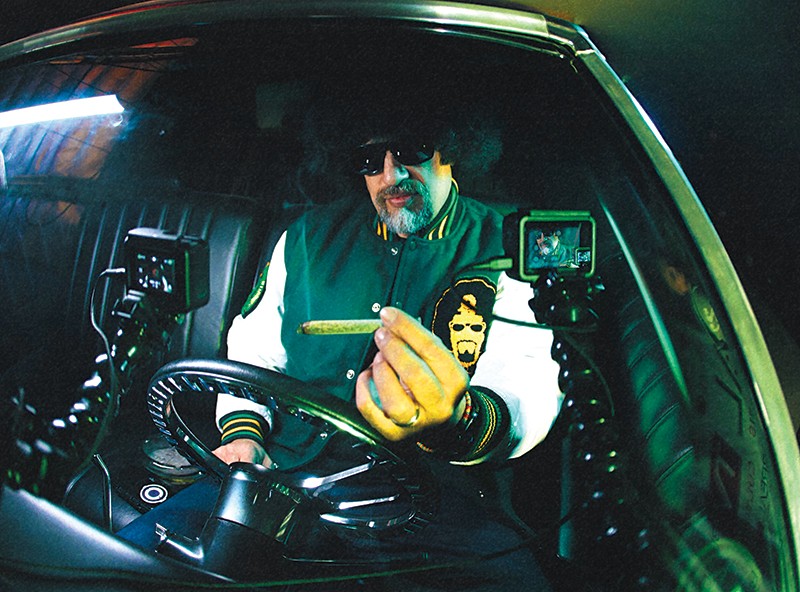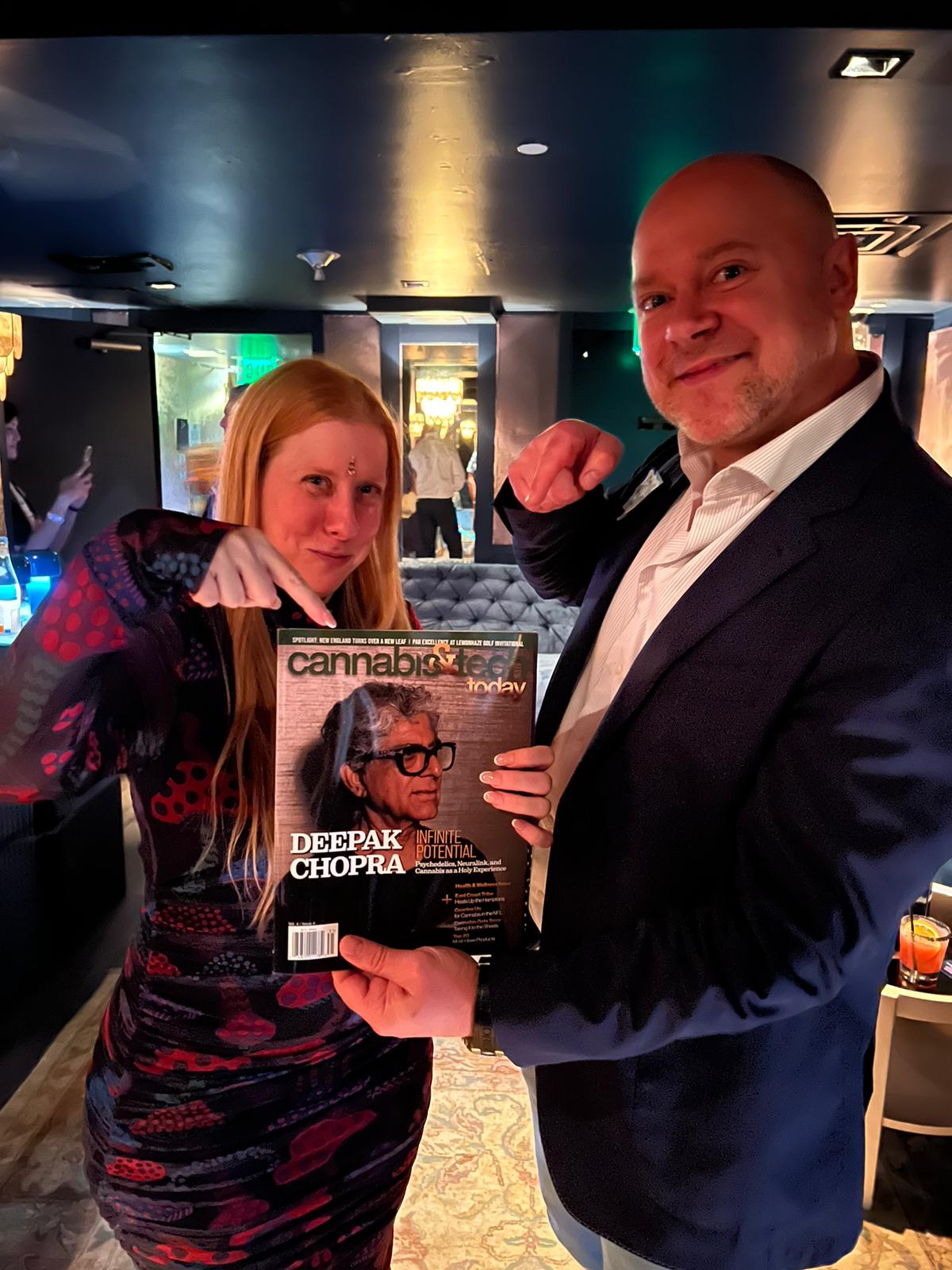In the early 90s, trailblazing trio Cypress Hill made music history by blending East Coast hip-hop fundamentals with West Coast Chicano swash. One-third of the group, rapper B-Real, is universally recognizable for his unmistakably iconic nasal twang. B’s alter ego, cannabis cultivator “Dr. Greenthumb,” was born, and the moniker evolved from a character referenced in his tracks to a self-titled dispensary chain.
Next came myriad licensing and merchandising deals. While Dr. Greenthumb may have the Midas touch, B-Real elucidates to Cannabis & Tech Today that all that glitters in the cannabis industry isn’t golden trichomes.
C&T Today: Let’s discuss your automated cultivation system, THC controls. How’s that going?
BR: We’re still working with THC Controls, dialing all that in, and getting ready to try and develop some other things for it. We’re updating the technology. We always got our eyes, ears, and minds open to new things. So, you just never know what might pop off.
THC Controls is something that we’re definitely proud to be a part of because that technology is for cultivators. That’s where we come from before we started the brand. We were a group of cultivators, trying to do this, right?
When you can put technology out there like this, that can make it easy for someone doing huge volume, makes us proud. People that have signed up and are using the system love it. We’re just honored to be a part of it and do whatever we can do to help in that regard.
C&T Today: How are things going with your Dr. Greenthumb’s trifecta of cannabis lines — Loyal, Legacy, and Unapologetic?
BR: It’s been doing well! We’ve recently launched this line on a limited basis in Arizona and Florida. We’ve got things lined up for Michigan very soon. Our consumer base is always happy with the products we put out in terms of the different flavors and whatnot. We’re pushing and dialing things in and making everything efficient.
It’s hard right now in this climate here in California. Regarding where we are with taxation and regulation, it is tough for all of us to be out here in this cannabis industry. A lot of people think it’s easy when they get in, that they’re gonna make money off the top, and it’s not necessarily like that. You have to weather several storms before you become profitable.
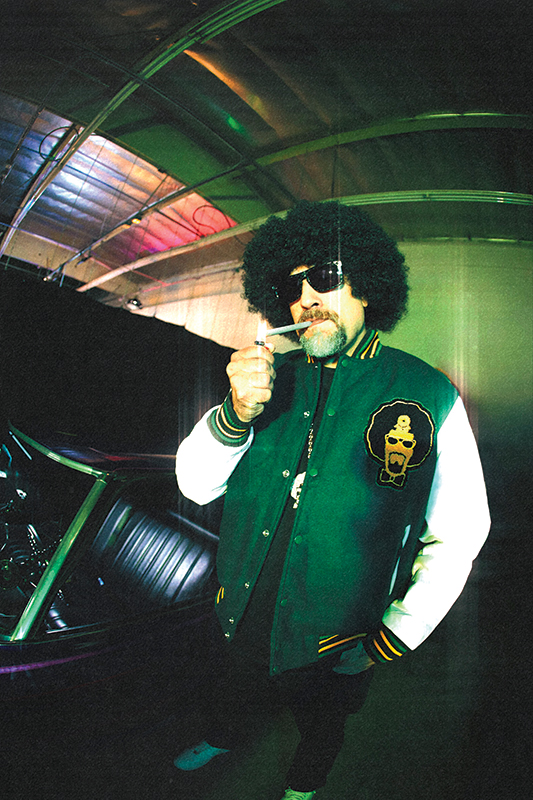
You gotta make sure you have brand strength, but even that doesn’t mean you’re absolutely 100% profitable. It’s a marathon. People think this is a short sprint in this game that they could just come in, and they’re gonna win off the top, but it’s tough, even for us with brand names and a head start in the game.
It’s tough, but we believe in it. We have a passion for it, and we know that it could be one of the top industries in the world once everything is dialed in.
So we’re just weathering storms at this point and continuing to try to strengthen the brand with the types of products, or strains that we’re putting out in the eventual products, that will complement the flower, aside from the actual cannabis. We’re trying to develop different things now.
C&T Today: I like your collaboration with Stüdenglass. The Dr. Greenthumb’s x Stüdenglass Gravity Infuser is sick!
BR: Yeah, we did the Stüdenglass GPen, and we also have one collaboration with Big Pete’s Treats, which is an edible line that we’re doing with churro cookies. And we expanded that collaboration by adding sugar cookies and bringing them to Arizona.
I wanted to work with Big Pete’s because of its reputation of being a top-shelf baked goods edible company. Pete is a legend in his own right and runs a family business. Churros are a big part of Mexican culture, and everyone, Mexican or not, loves a delicious churro. So I thought, “Why not combine two of my favorite past-times for my fans and customers to enjoy?”
C&T Today: What is your favorite project that you have on the horizon?
BR: What we’re focused on with Greenthumb’s is the expansion, getting into other states, other cities outside of California. That’s the highest priority. But in terms of creativity, probably the project I have coming out with Burner is produced by Scott Storch. That’s gonna be a cool one. We’ve been waiting on that one for a while.
C&T Today: The last time we spoke, you were just opening up a dispensary at LAX. Are you debuting any new stores in California? Are you focusing on additional states?
BR: There’s gonna be a few new California stores popping up. We are launching in Arizona and Florida with Dr. Greenthumb’s flower and Washington with our Insane flower line. We’re trying to get into Massachusetts, New York, and several others. We have to deal with what we have going on here in California by getting the stores we are focused on to open.
We also have to clean up and take down the ones that we feel aren’t representing our brand properly in terms of operational practices. This is something I’m personally involved in.
The fortunate thing for us is that when we slap our brand on the building, the consumers trust that we’re going to have fire in the building and that we’re gonna have top-shelf products on the shelf. We’re gonna have products for everyone else that maybe can’t hit that top shelf too. They trust the brand in that regard.
C&T Today: Celebrities are coming into the fold and trying to figure out if their angle is they love the herb or want an easy legal endeavor. Although, as you said, it’s not particularly easy. I think a lot of people are in for a rude awakening once they realize how difficult the cannabis industry is.
BR: Oh yeah, I would imagine there’s a lot of hedge fund companies that came in backing these brands that didn’t have a name, but they’re cultivators. And some of their folks had a little know-how and just threw money into the fire. I mean, there are brands out there right now that are some of the biggest brands, and their profit margins are thin. It’s not an easy game.
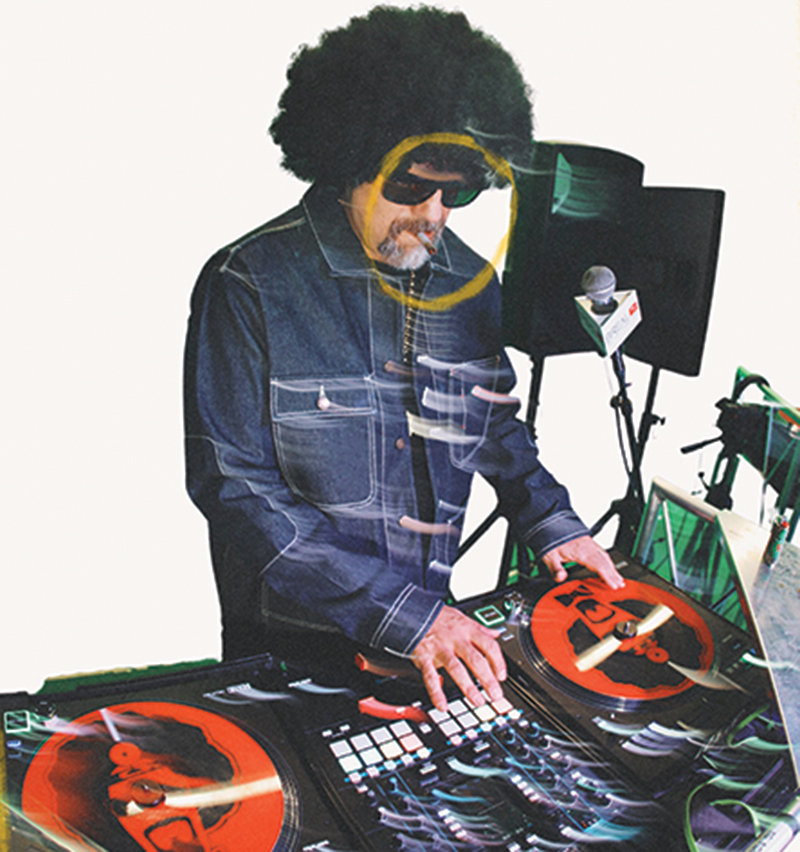
I did a panel at a convention in Las Vegas. It was with Jim Belushi, Ricky Williams, Calvin Johnson, a moderator, and myself. And Jim Belushi spoke to it. They asked him how his brand is doing, and he goes, “I’ve been in this industry for seven years, and I’ve just barely broken even.” That gives you an indication of how tough it can be, even with name recognition.
C&T Today: Realistically, getting a startup off the ground generally takes at least five years. Being famous might give Jim a leg up, but not a shortcut. What will improve, offset, or alleviate the situation? Do you think a certain category, such as beverages supplemented with merchandising, will do the trick?
BR: It’s taxes. Our cannabis taxation is way too high. It’s hard for an operator of any sort. Whether it’s a cultivation or retail model, they’re taxing the hell out of both. And in terms of the regulations that are happening for both, along with the fees, fines, payments for licensing, and permits.
Let’s just say they come to inspect your building for your license. And you’ve done all this build out. You spend all this money, and they tell you, “This right here, this one little thing is wrong” and then you got to spend like $10, $15, $20 grand to fix that one little thing, and it all adds up.
Right now you have a lot of independent people with not a lot of money trying to invest, coming into this to try to make a business. And they’ve made it to where you could spend your goddamn life savings to try to come in, and it ain’t enough. You got to have funding to make money in this game, and then you’re gonna have to wait a couple years before the profits start to come in.
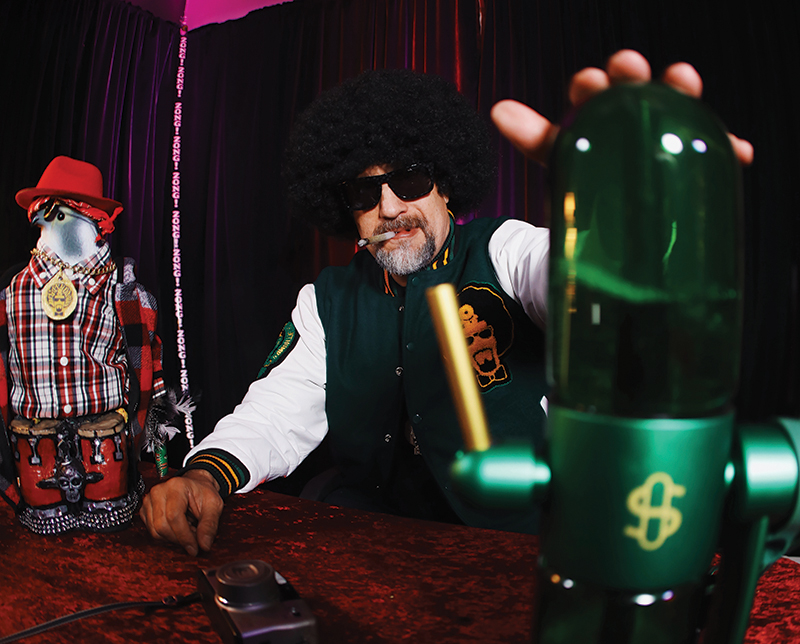
What would help is if all these states that have legalized or decriminalized cannabis brought the taxation down. I mean they make plenty of money from cannabis. I mean California’s got a huge surplus right now because of cannabis. They’re not talking about it. But what other industry has come into California that has generated the revenue that cannabis has?
We built a bridge on 6th Street that the state didn’t have money for like 10 years ago, and here it is. It’s one of the nicest, most poppin’, beautiful bridges in L.A., that we didn’t even need like that. They could have just done a revamping. People just drive over it. They made this bridge a scene with taxpayer money.
Where did they get that taxpayer dollar from? They got it from the sales tax on cannabis because of the tax that goes on every operator, and it goes on the consumer. They double-dip on it. It’s hard, especially when you have people over-producing cannabis, and you got to cut your prices on your premium cannabis and everything else to compete and to survive. The margins are really low in terms of what you’re going to make.
C&T Today: And the glut or surplus could spoil.
BR: Yeah, exactly. Our state government needs to understand that the tax is too high. Then eventually, the feds need to just legalize this shit proper and quit fuckin’ around. We know that it’s the number one cash crop. We know the kind of revenue it brings in. All they’re doing right now is serving the black market by not making this a fair industry for all of us investing to come in and try to build the business.
C&T Today: Do you think it’s just high taxes that drive people to the legacy market? Some people don’t want to give their ID to dispensaries that record and use facial recognition software. They still want their cannabis use off the radar.
BR: Yeah, there’s that. There are those folks that are trained to feel like they don’t trust the government, the state. So they’re just gonna keep buying from homie in the back alley or my homie that slangs the trap packs. There is always gonna be that. You’re never gonna get rid of that. But, you could lessen it by making the scenario a little bit more user-friendly, and not punishing the people that are consuming it; and not punishing the operators that are providing it to the people legally, safe and clean, and whatnot.
Legalization has its pros and cons. But, we have noticed that a great number of people that want clean cannabis want to walk into a dispensary because they feel safe there. They don’t feel like they got to look over their shoulders or cops are gonna come raid the house that you’re trap dealers in while you’re going to try to buy your weed or whatever. They feel a level of safety, and people want that. Now there are people used to that, who don’t want to go backward.
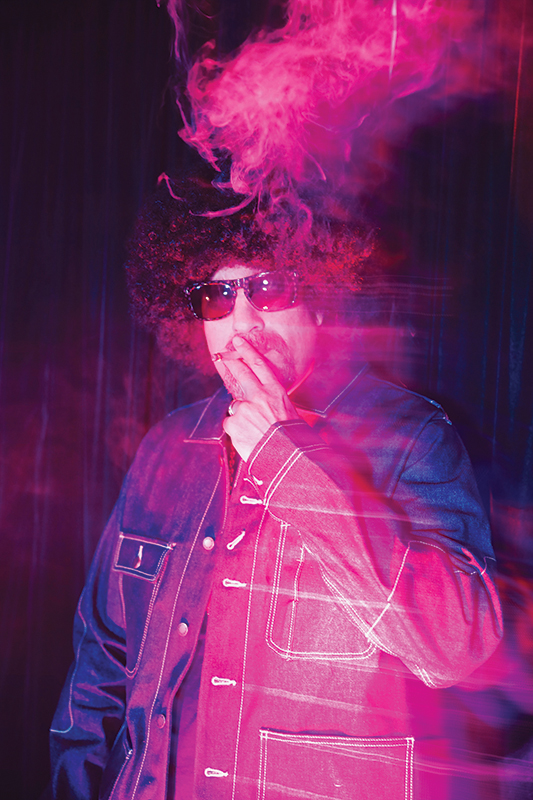
So, you have a part of the culture that embraces the legalized aspect because they want clean, licensed medicine. Stuff that’s not going to potentially make them sick. We have it legal now, and we need to push and make it fair for the consumers and the operators.
Until they do that, everybody will try to survive until the corporations come in with enough money to lobby with these folks to bring that tax down. But when they do that, it will benefit them and not anyone else. It’s gonna continue to wash all the independent and mom-and-pop shops and cultivators out.
C&T Today: Do you think that money could be better spent elsewhere? Low-income housing, for example?
BR: Maybe that money, instead of being used on a fucking bridge, could be better spent, yeah.
C&T Today: Do you have political aspirations or a desire to fix things?
BR: I might run for mayor when I get too old for the hip-hop game. You never know.
This article first appeared in Volume 5 Issue 1 of Cannabis & Tech Today. Read the full issue here. Photos by Emily Eizen.

